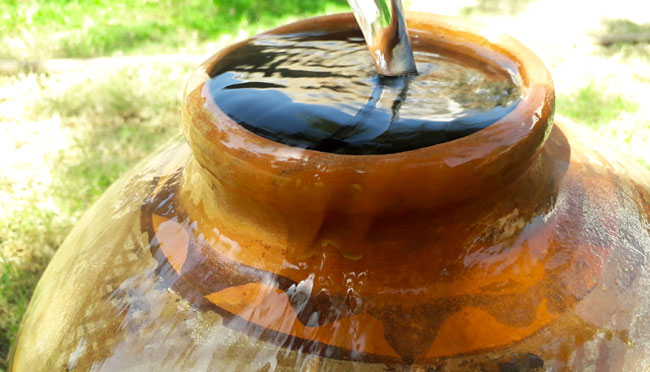
Dear All,
Greetings from Centre for Science and Environment, New Delhi, India.
Course Coordinator- Swati Bhatia
Dates for the training: February 5, 2021 to February 18, 2021
We
are living in water-stressed times. Approximately four billion people
experience severe water scarcity at least one month per year. It is estimated
that by 2030, 700 million people worldwide could be displaced due to intense
water scarcity. The growing demand for water comes at a time when the potential
for augmenting supply is limited, water tables are falling and water quality
issues have increasingly come to the forefront. The current water paradigm in
India and many developing countries, primary focuses on the supply side
management and providing hardware solutions is unsustainable and non-feasible.
This further aggravates the problem of inadequate municipal supply, ground
water depletion and water pollution.
Moreover the current COVID19 pandemic demonstrates why water and sanitation — being an effective barrier against the virus — must be available, accessible and affordable to all. A lack of these can be a significant vector / pathway in the transmission of the virus, if proper hygiene is not followed. The need of the hour is to redesign the water management systems and introduce the water harvesting systems in the community and reduce water usage and wastage.
Often developing countries neglect the most proven and sustainable methods of decentralized water collection and instead depend on mega projects and thus fall for unsustainable methods of water withdrawal without any effective regulations on the quality and quantity of water supplied. This creates various issues. It is time to call for a paradigm shift to decentralized approach to ensure sustainability. Traditional methods of water harvesting and usage methods need to be revived and if required, modified to suit the present day requirement. Rainwater Harvesting (RWH), which is seemingly an ideal sustainable solution, entails the collection of rain in a scientific and controlled manner for future use and consists of roof top water harvesting, water from open areas such as paved ways, parks, roads, fields and in lakes and ponds. There is also need to emphasize on various water conservation measures and the reuse and recycle of treated wastewater. These are cost and resource effective ways, which can be easily adopted with the help of community. This training shall address such aspects and many more to bring forward the aspects of community participation, reuse of treated waste water among others, etc.
Purpose
The training programme has been primarily designed for the water experts of
Uganda who are involved in rain water harvesting and ground water recharge
practices. These participants shall be involved in on-ground implementation.
They shall learn the state-of-art concepts and principles of improved water
management techniques at their own comfort.
Learning Objectives:
To understand the existing problems in water management.
Understanding of the definition, concept and approach of ground water augmentation by water harvesting structures.
Understand the other methods of water conservation, and reuse of treated waste water.
Understand the effectiveness of community participation, and the need to regularly monitor the quality of water.
Understanding about the enabling frameworks and regulations applicable.
Module Set up
Module 1: Introduction and overview
Module 2: Tools and techniques
Module 3: Community participation and management of water harvesting structure
Module 4: Other options for water conservation
Module 5: Monitoring of quality and quantity of groundwater
Module 6: Communication strategies
STUDY LOAD AND STRUCTURE OF THE MODULES:
Reading materials: Suggested articles, presentation by experts, technical manuals and related videos will be located under each module. After completion of each module, participant has to take a test. This is mandatory to go to the next module. One assignment will be given at the end of the programme, with a time limit. Queries, problems related to the content of the programme can be communicated with the coordinator any time. Solutions will be provided by subject experts. Even any experienced participant can be part of the thread of the communication. Live session with experts will be arranged. At the end of the programme, a digital certificate of participation will be given to the participants
Course coordinator Swati Bhatia
Programme Officer, Rural Water–Waste Programme
Email: swati.bhatia@cseindia.org/ sushmita@cseindia.org